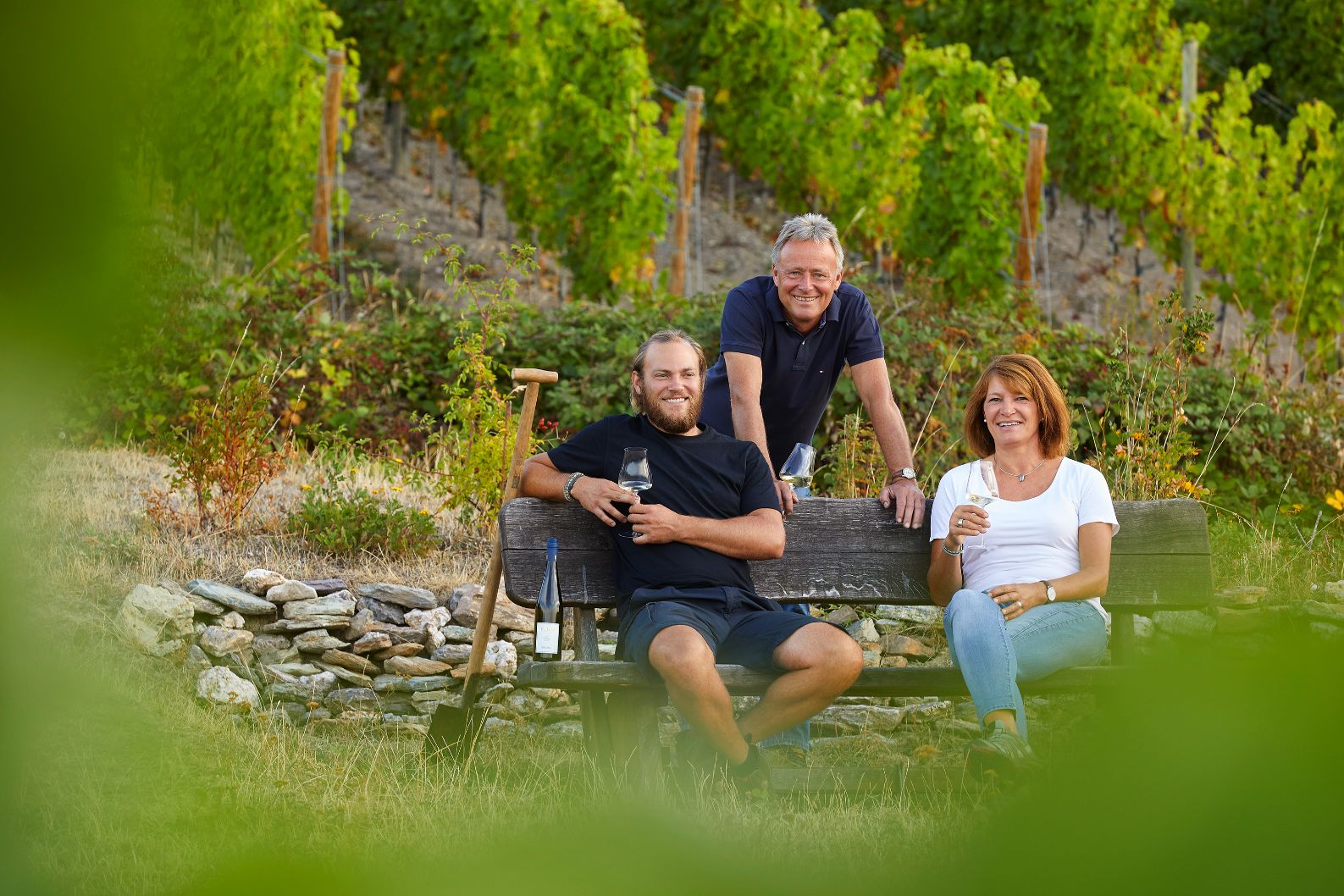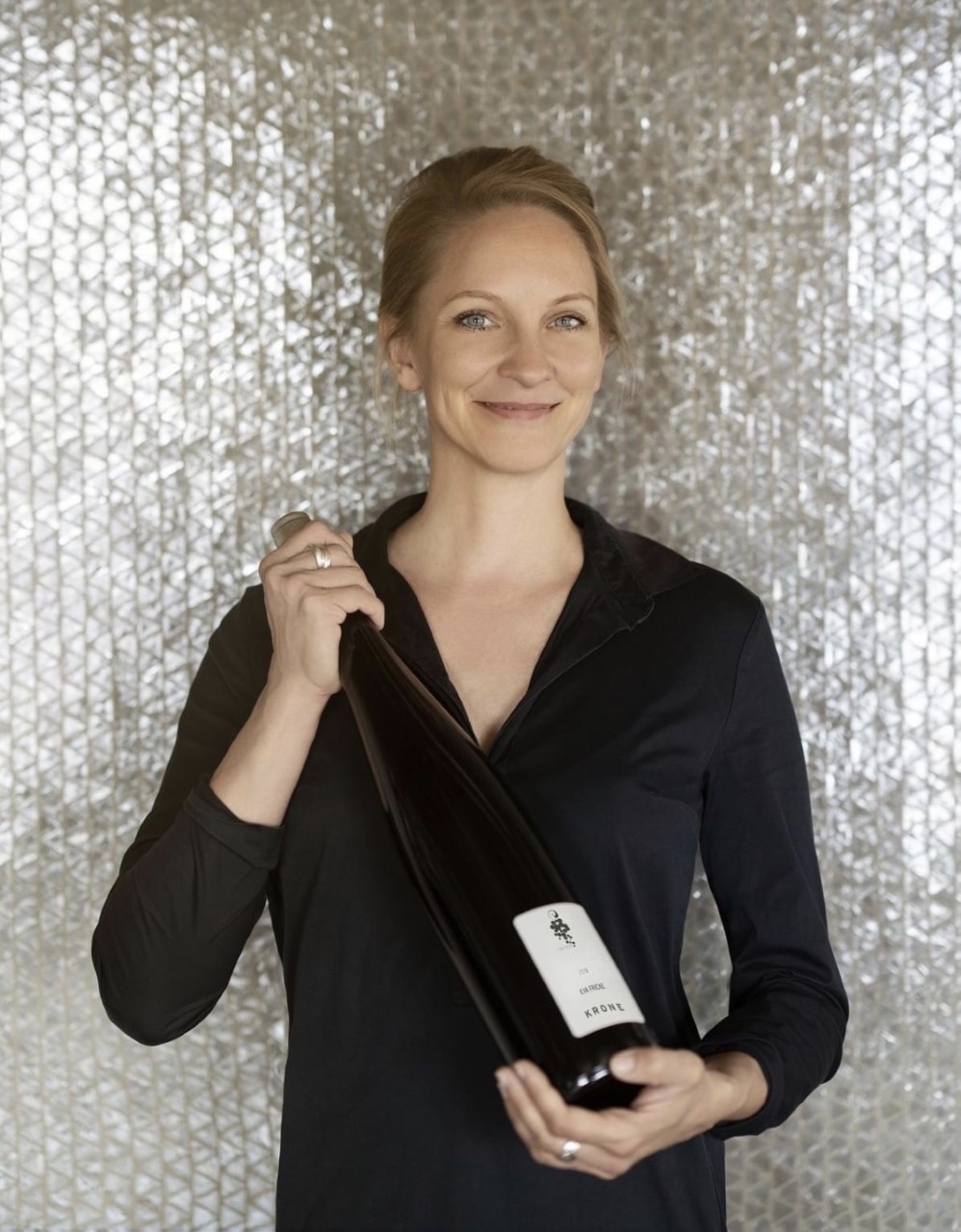The Rheingau’s Prince Has Come

Fred Prinz has helped raise the game in the Rheingau, with several astute vineyard purchases.
Two days ago when I opened my email I almost fell off my chair: the small Prinz wine estate in Hallgarten in the Rheingau had just leased land in the region’s legendary Marcobrunn site. It’s a magical location for the Rheingau, comparable to the Grand Cru Richebourg of Vosne-Romanee in Burgundy. That kind of real estate almost never changes hands and it’s just been picked up by a winery founded in 1991 that’s based in a regular suburban house! Prinz is German for Prince, but there’s nothing royal about Fred Prinz. More of his story in just a moment, because first I need to introduce you to the region.
First, the basics: the greater part of the Rheingau is on the south-facing right bank of the Rhine west of Frankfurt around 50° North. With 3,185 hectares / 7,867 acres of vineyards it only accounts for 3% of Germany’s vineyard area, but slightly more than three quarters of it is planted with riesling. Spatburgunder, aka pinot noir, is the second most important varietal with one eighth of the vineyard area. If you look at historic stats from 50 and more years ago this looks like great continuity, but the real story is very different.
When James Suckling and I started out as wine critics in the early 1980s, the Rheingau was still widely regarded as Germany’s premier wine region, but its aura of greatness was fading fast due to erratic wine quality. Then, many of the great aristocratic estates that built the Rheingau’s reputation from the late 18th century closed down, were sold off and/or broken up. Prinz leased that Marcorbunn vineyard from the Schloss Schonborn estate, an aristocratic winery that’s being mothballed after struggling for many years.
- Gunter Kunstler is an example of a relatively new winery that has brought the Rheingau back to its former glory.
- A church basks in the sunlight in Hochheim in the Rhiengau, where some excellent wines are once again being produced.
From the last turn of the century the region struggled to regain the lost ground and shake off the image of being past its sell-by-date; a source of pretentious but unexciting wines. At the same time the neighboring region of Rheinhessen to the south charged forward, overtaking the Rheingau in both image and coolness through high quality and innovative marketing. Fifteen years ago I christened Rheinhessen the Dream Factory of German dry white wines.
Behind the scenes big changes were afoot in the Rheingau as producers who once looked insignificant like the Leitz estate in Rudesheim grew at an astonishing rate to become regional powerhouses. In 1991 when I first met Johannes Leitz he had just 3 hectares / 7.5 acres and now it’s 120 hecatres / 296.5 acres. That’s 3,900% growth in 30 years, or 130% per year! Kunstler in Hochheim is another dramatic example of a top producer coming from nowhere. Franz Kunstler founded his estate in a garage in 1965 and from the late 1980s his son Gunter pushed it to the top of the region, expanding the vineyard area from 7 hectares / 17.5 acres to the present 50 hectares / 123.5 acres. This growth was all driven by a tireless commitment to quality.

Eva Fricke has produced some of the recent star wines from the Rheingau.
The Robert Weil estate in Kiedrich was already highly regarded 50 to 100 years ago, but belongs in the same category having reinvented itself since the Japanese drinks giant Suntory became co-owners with the Weil family back in the late 1980s. World-famous Schloss Johannisberg just became a similar story, since new director Stefan Doctor pushed it right back to the top with the stunning 2019 vintage wines. We gave his 2019 Spatlese “Grunlack” a perfect 100-point score. Technically it’s a medium-sweet wine, but it is radical in style, at once super racy and super complex.
Today, that off-dry Spatlese is an exception, the focus of Rheingau production being dry riesling with Leitz’s 2018 Berg Schlossberg GG rating 98 points, Kunstler’s 2019 Kirchenstück GG and Robert Weil’s 2018 Monte Vaccano both rating 99 points in our last German report.
The new Rheingau story is about how much smaller, very agile young wineries like Prinz and Eva Fricke in Eltville (founded 2006) have charged to the top. Prinz’s 2019 Schönhell GG from Hallgarten also rated 99 points and Eva Fricke’s dry 2019 Krone Trocken from Lorch gained a perfect 100 points score. The interesting things about their wines is how they have driven booms of interest in the vineyards of Hallgarten and Lorch, both now cool and sought-after vineyard locations!
Then there’s Dr. Corvers-Kauter in Oestrich-Winkel, who acquired a bunch of top vineyards when the once famous Langwerth von Simmern estate closed down three years ago. We just tasted their current wines rating them all 90+ points. The most impressive of these wines were the massive dry 2019 GG and lusciously sweet 2019 Trockenbeerenauslese from the Marcobrunn site.
Planet Wine develops in cycles and some great Rheingau names like this look to be climbing back towards the top. Watch this space!
Below are all the wines from the Rheingau that we have tasted over the past 12 months. Subscribe to see the scores and tasting notes, and to sort the wines by vintage, score and more.
– Stuart Pigott, senior editor

